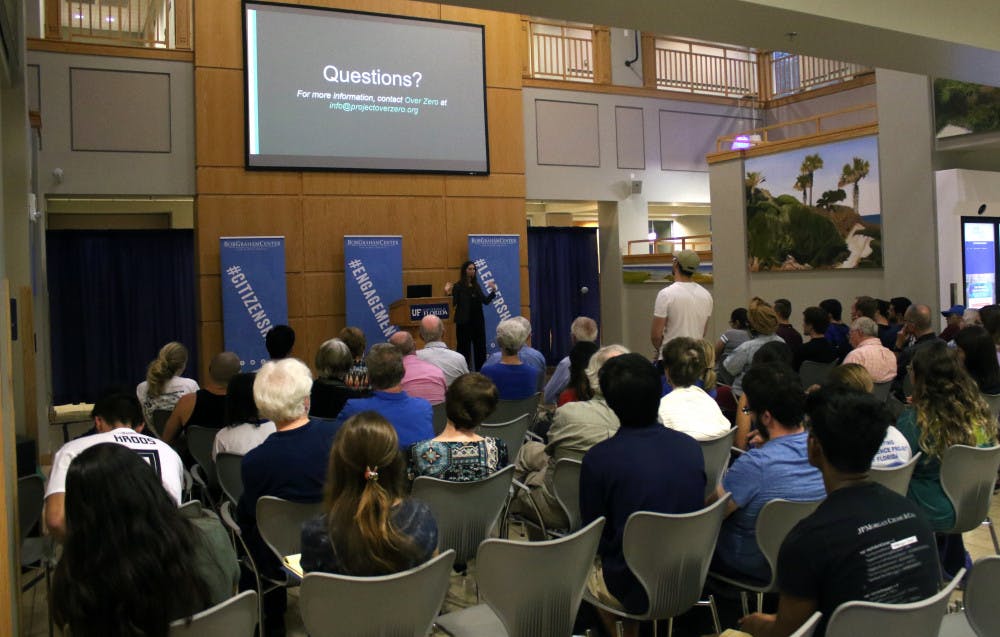Texting became deadly during the 2007 Kenyan elections.
Cell phones were used to spread hate speech and coordinate attacks, said Rachel Brown, the author of “Defusing Hate: A Strategic Guide to Counteract Dangerous Speech.”
Brown spoke to about 100 UF students and Gainesville residents Tuesday night about how allowing hate speech is the first step to genocide. Her speech was followed by a 15-minute Q&A.
The room was packed with students scribbling notes and listening closely. Event organizers brought in extra chairs for those standing in the back and on the sides of the room.
Before the 2013 Kenyan elections, Brown founded a messaging service that sends out texts about elections to prevent hate speech and violence caused by misinformation. In 2017, she founded Over Zero, an organization that provides training for preventing speech-driven violence.
“Because we have the benefit of hindsight and history, we should do something about it,” she told the audience.
Brown said people shouldn’t make others ashamed for being a hateful person, but instead help them recognize why their actions are hateful.
“Shaming really backfires,” she said. “Groups always see themselves as the ones in the right.”
The Bob Graham Center invited Brown because of the anti-hate skills she can teach students, said Gale Sasnett, the center’s associate director for public programs. Brown was not paid for the speech.
Rachael Borman, a 20-year-old UF political science junior, said Brown’s speech was timely considering the current political climate. She came to the event because she enjoys conversations that connect the community.
“It’s important to be civically engaged,” she said.
Rachel Brown, 30, answers questions from students after concluding her talk on how to combat hate speech in the Pugh Hall Ocora at the University of Florida Tuesday night.






